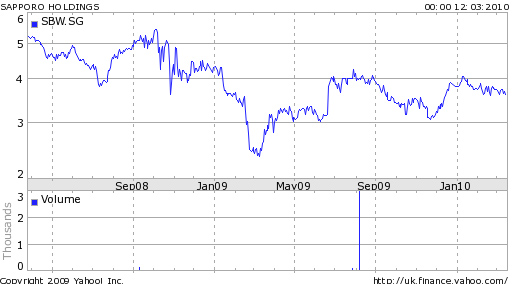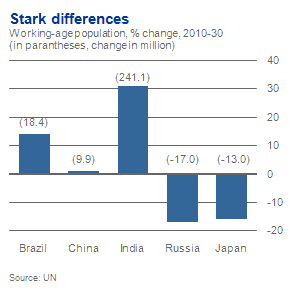The move is aimed at putting pressure on Sapporo’s management to revamp its strategy for the group, which has struggled to remain competitive in Japan’s declining beer market. The hedge fund claims that the current board has failed to implement an effective strategy to address Sapporo’s poor profitability.
Currently, China has a per capita beer consumption figure of 32 litres. Brazilians drink 57 litres of beer per capita, Russians 81 litres and Indians 1 litre. To what extent this figures will rise in years to come depends to a large extent on the demographic change in these countries’ working-age populations.
Manufacturer Bayer says that the Berocca Performance tablet contains Vitamin B complex to help the body release energy from food; Vitamin C to support a healthy immune system; Magnesium, which combined with B vitamins helps release energy from food and keeps the nervous system and muscles working properly, plus Zinc.
While analysts had predicted the fall in wine earnings, many were surprised by the flat beer sales in the six months ended 31 December 2009. CUB, Foster’s domestic beer unit, recorded a 4.7 percent gain in sales revenue but this was tempered by a 1.1 percent decline in the company’s volume share of the Australian beer market, believed to be growing at between 1 and 3 percent overall.
Noted winemaker Brian Croser (ex Petaluma, Hardys etc) recently told a meeting of Australian agricultural economists that the current problems faced by the Australian wine industry can be traced directly to less than ten large corporations which collectively crush more than a million tonnes of grapes a year.
Members of the opposition Liberal Party pounced on Mr Rudd’s remarks, saying a change to the law would deprive 18-year-olds of their rights as adults.
The merger plan, first unveiled in July 2009, would have created a company with annual revenue of about Y 3.8 trillion (USD 49 billion), rivalling the world’s leading brewer AB-InBev in terms of sales.
If a flat tax is introduced it would simplify the tax system but it would change the economics of the entire industry. In a nutshell, cheap wine would increase in price, premium wine would fall, spirits and alcopops would fall, and beer sold in pubs and clubs would rise.
Independent Liquor, which was founded by the late Michael Erceg in 1987 and was sold to a private equity partnership in 2008 following Mr Erceq’s death in a helicopter crash, is believed to be worth about AUD 700 million (EUR 447 million). This is much less than its two private equity operators paid for it three years ago: the equivalent of EUR 650 million.
According to local media sources, the Chinese backyard operators had filled used Corona bottles with other beers of varying quality and some had labels inconsistent with those legally sold in Australia.



